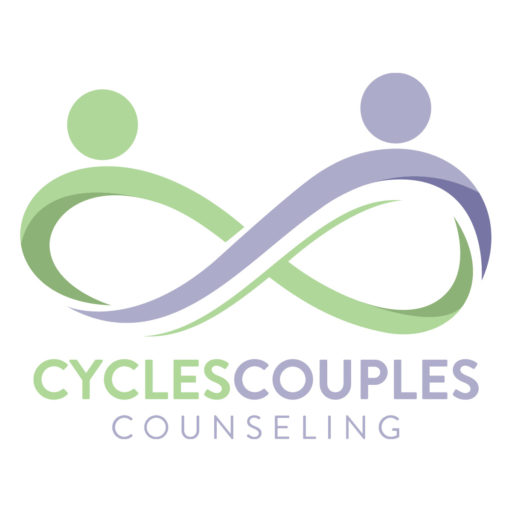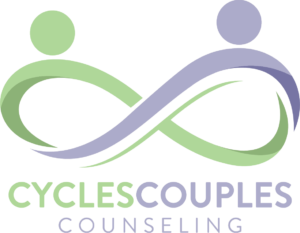Many couples that enter eft therapy are stuck in the nasty cycle of “Find the Bad Guy.” This captivating exchange of pointing fingers and giving evidence to prove your innocence can feel just as empowering as it does upsetting. This is the Blame Game.
However, what most partners fail to notice is as they point out the other for blaming, they are doing the exact same action. It’s like the old adage goes, “Remember, when you point your finger at someone, three more are pointing back at you.”
Why Does Blame Feel So Good?
We get it. Blame feels great! When something goes wrong, the first thing you want to do is figure out what caused the problem. There’s nothing more unsettling than the unknown.
“If I can blame you, at least I have a reason for why we’re in this terrible place.”
And even better, if the reason isn’t your fault, you can rest easy knowing you’re not guilty. This is the appeal of blaming.
Blaming Statements Of Superiority
While you may be right that your partner started yelling and escalated your negative cycle, you are also adding to this escalation by blaming. When you play the “blame game” you are in a constant state of proving yourself. This leads to statements of superiority.
“He’s the one who started yelling.”
“She had the worst tone of voice.”
“They are so defensive.”
Statements like these are particularly dangerous for relationships. The more you point out the differences between you and your partner, the more the competition and disconnection grows.
One of the most prominent couples therapy researchers in the field, John Gottman, labels this phenomenon as “contempt and criticism”. He states, “contempt is THE BIGGEST predictor of divorce.” As couples create morally degrading arguments about their partner’s character, they are damaging the safety of their bond. This is the most dangerous style of communication.
The more you call out your partner for bad behavior, the more you are distancing your teammate and fueling this terrible competitive cycle of “Find the Bad Guy.”
The Blame Game: The Pot Calling the Kettle Black
Sometimes, one of the trickiest jobs a couples therapist has is holding up the mirror. EFT couples therapists help partners to take ownership by raising their self-awareness. It’s crucial to know how your actions impact those in a relationship with you.
While it’s true, your partner is doing things that contribute to the reactivity of your negative cycle, it’s important to recognize what you are doing in response.
When your partner uses a condescending tone, how do you respond?
When she yells, how do you act?
Are your actions de-escalating the situation or adding to it?
Often times partners are so caught up in calling out the other, that they fail to recognize they’re not being vulnerable either. Every time you point out your partner’s issues, you are fueling the negative cycle of communication. From a bird’s-eye view, you are both being reactive and harsh.
Winning Isn’t Really Winning.
Rarely, if ever, does one partner actually win an argument. Proving your point and degrading the other does little to serve a relationship purpose, and definitely doesn’t get you out of the cycle.
Now that you have your partner feeling worthless and full of shame, what is the point? What is the gain of having a hurt partner?
Unless a negative cycle has escalated to highly contemptuous levels, it’s usually not a goal to make your partner feel bad about themselves. You love them. You don’t want to hurt them.
Couples therapists rarely, if ever, see successful couples where one partner is on top of the world and the other is down in the dumps. Remember, this is a partnership.
How To Conquer The Blame Game
We get it. If your partner is acting inappropriately, that behavior needs to be addressed. You can only take the high road for so long till you react. That’s where couples therapy comes in.
The key is how you react. It’s important to be clear on what you are trying to accomplish.
What do you want? What’s your endgame?
Do you have any unmet needs?
How could you feel better?
If your partner is yelling or using a condescending tone, it’s safe to say it probably either hurts your feelings, scares you or makes you feel less than.
Can you tell them how you feel?
Next, dial in to what it is you need in these blame game moments. Arguments are uncomfortable and upsetting. What do you need to feel safe and change this dynamic?
When you yell at me I get scared and feel like going away. I need to know you want to be with me.
When you talk like that, I feel so small and stupid. I need reassurance you don’t think I’m an idiot.
It’s so painful when we get in this cycle. I don’t want to argue with you anymore. Can you just hold me?
While some of these statements are the gold standard for vulnerability and may be hard to reach at the peak of reactivity, it’s important to do an internal check-in.
Am I being reactive too or am I showing my partner the vulnerability I’m wanting in return?
Vulnerability Is Difficult.
At Cycles Couples Counseling, we have realistic expectations about your ability to interact vulnerably with your partner. Unlike many idealistic counseling books, we understand asking for a hug in the peak of the “blame game” is a fairy tale expectation. Frankly, that would be a scene in a cheesy romantic comedy movie.
However, with EFT therapy, both you and your partner can learn to identify your needs and nip these reactive cycles in the bud before it’s too late to reach vulnerably. Through increased self-awareness and vulnerability, you can build the safety you need to stop the “blame game” and keep your negative cycle de-escalated.
Interested in hearing more about how to fight fair? Schedule a consultation session today and let's do something different.
Learn more about couples therapy in California.

